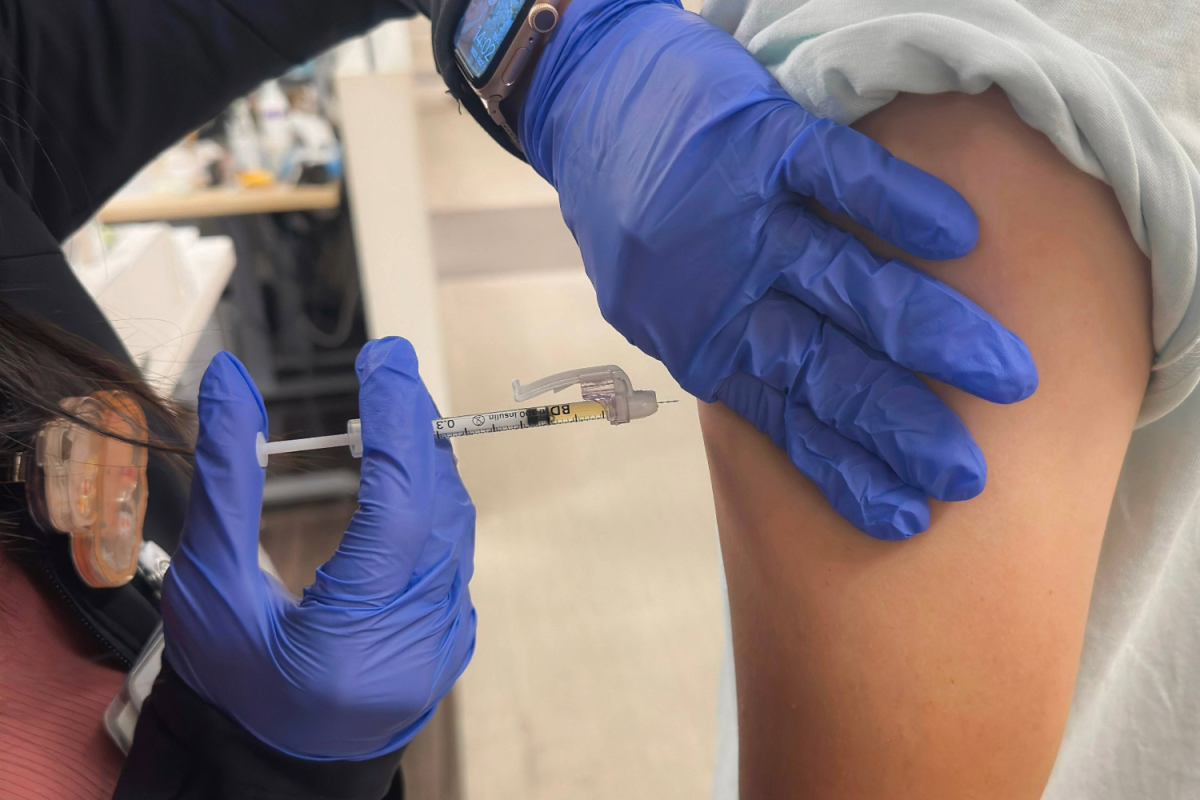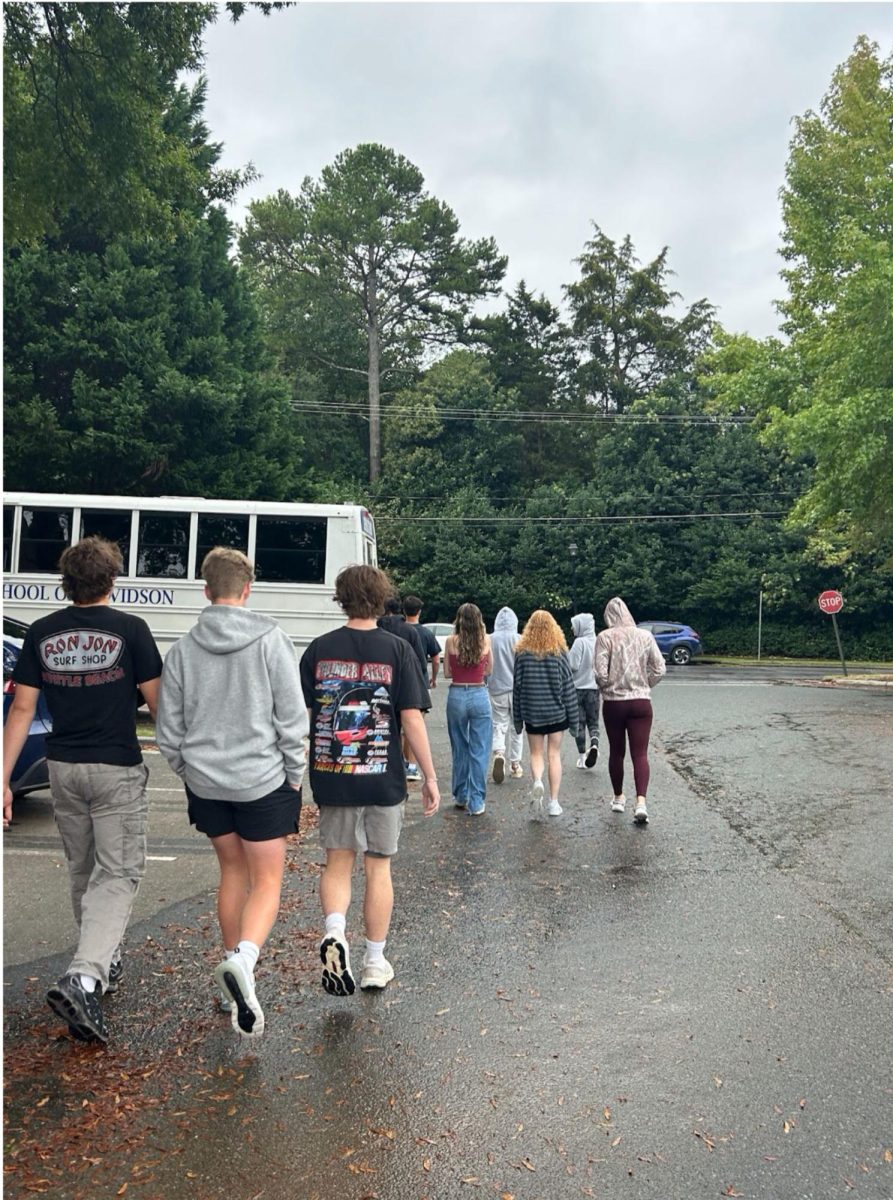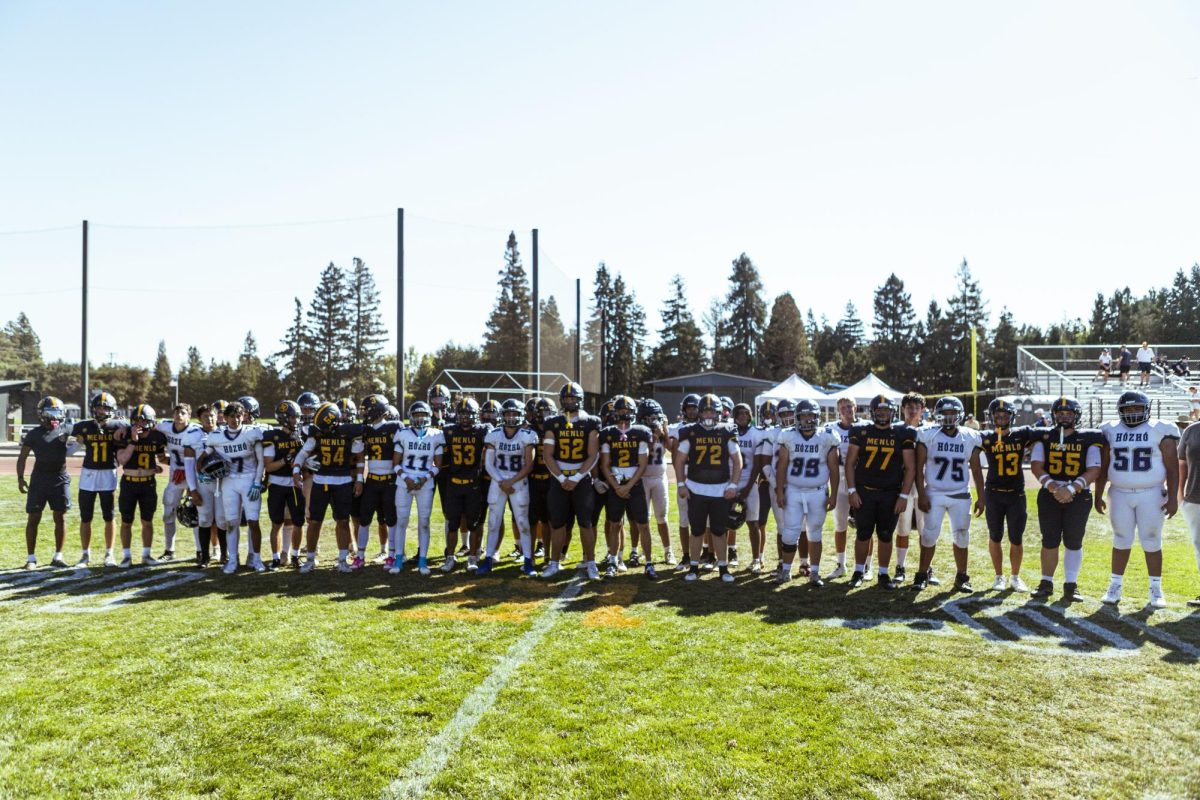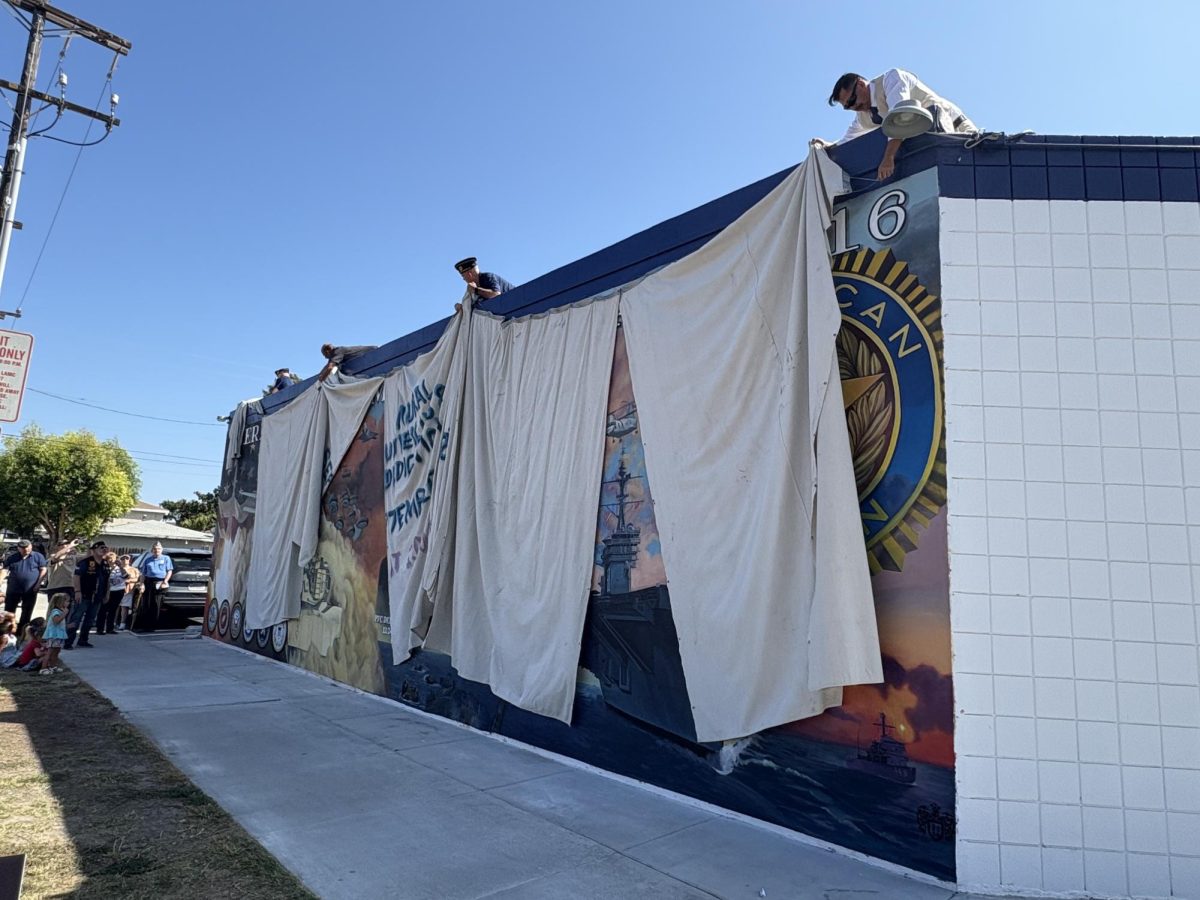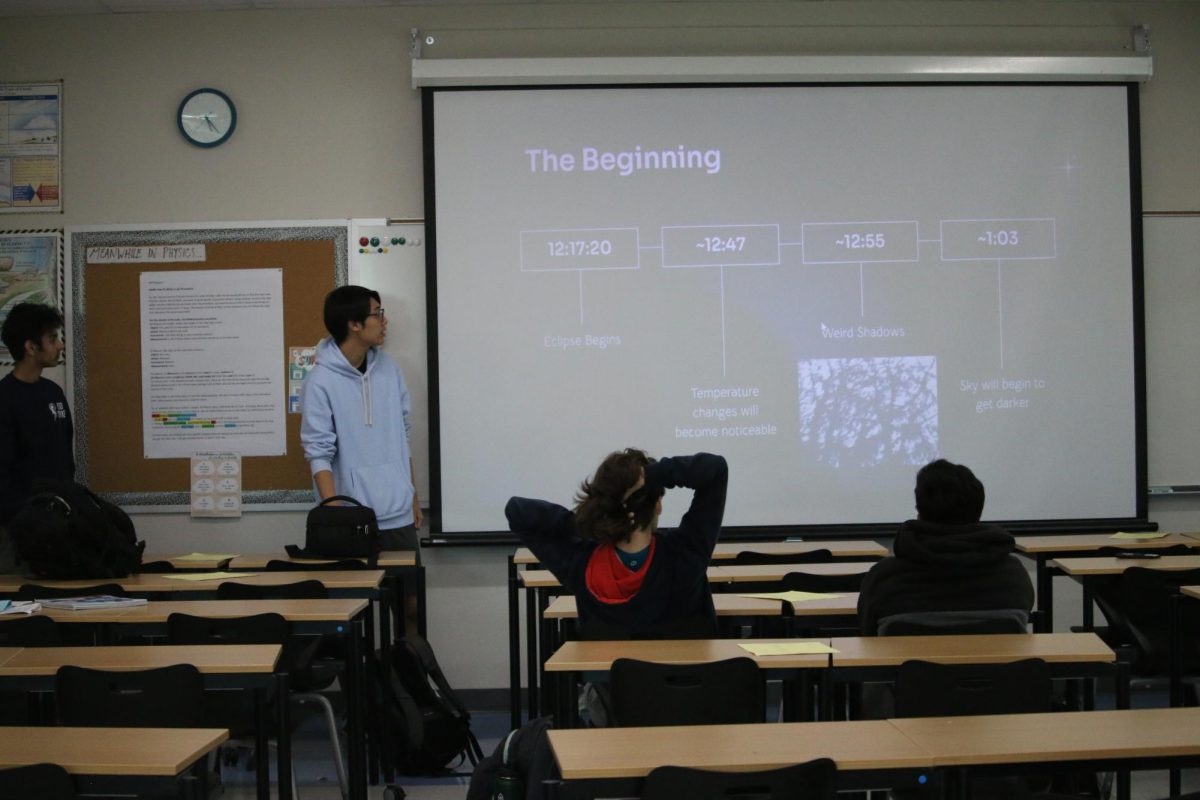There are an approximate 200 billion stars in the universe. Each star is unique, in a different shape, galaxy, and containing a different intricate pattern. Astronomy seeks to look deeper into the cosmos to discover the importance of space and celestial bodies. The sky is an incredible abyss with many unanswered questions.
Astronomy club celebrates the fascinating cosmos by bringing students together to discuss space, science, and various other topics. For the solar eclipse, the club brought down their telescopes in another attempt to expand space science learning on campus.
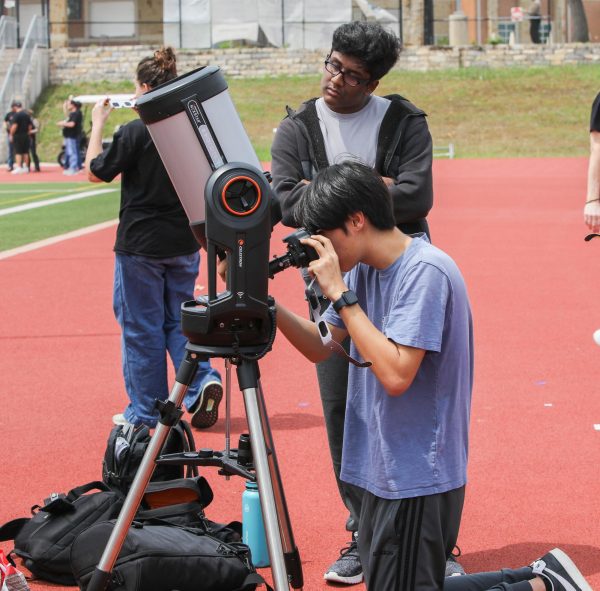
“One thing I’ve seen is that there are no astronomy programs or astronomy classes in the district,” President Nipun Nagendra said.
On campus, there are a plethora of science courses in a variety of disciplines, however, this excludes astronomy or astrophysics. Nagendra’s personal passion for astronomy was ignited when he moved to Austin and fled the light pollution of Los Angeles. This event enabled the junior to see even clearer images through his telescope.
“I got a telescope in middle school and ever since then I’ve been able to see the stars very well,” Nagendra said. “But I lived in LA and the light pollution there is very bad. So when I moved to Austin I got an astrophotography telescope and was able to see deep space objects.”
Nagendra not only wanted a space to spread astronomy education, but also advocate for causes he is passionate about. This includes the limitation of light pollution in cities.
“We have a partnership with the International Dark Sky Association (IDA),” Nagendra said. “The IDA works to regulate light pollution and encourages the limitation of light pollution in cities.”
Astronomy however is not just about limiting light pollution, it is much deeper. The club focuses meetings on different current and scholastic space topics.
“At the club we have a chosen topic and we break it down for people to really understand,” Nagendra said. “For example, in one meeting we discussed gravitational waves. Also, we do different challenges like photo challenges for points within the club.”
Astronomy education spans further than just on campus however. Students from the club have created an outreach program where they visit local elementary schools on their STEM night to further discuss space and science with younger students. Nagendra describes the experience of attending STEM nights alongside Vice President Samuel Kim.
“One thing that we’re particularly proud of is our outreach,” Nagendra said. “My co partner and I have been to several elementary schools and we like to bring our telescopes so they can look at the stars and we have a presentation. We really want to foster a passion for astronomy in young people.”
Space has been at the forefront of national attention this year due to the solar eclipse. Prior to the 2024 eclipse, the last recorded total solar eclipse in the United States was in 1979 according to NASA. Due to the historic event, the club organized special events and meetings for the eclipse.
“We held informational meetings about the eclipse and general eclipse safety,” Kim said. “We discussed how to use the goggles to prevent blindness and what you’re looking for when you wear them.”
According to NASA, this is the first time that the totality of the eclipse has passed through Austin in modern times. Totality happens when the moon completely covers the sun’s shadow, making the world look uncharacteristically dark for a few minutes. The club wanted to take full advantage of viewing totality.
“We went to the stadium during the assembly and put solar filters on our telescopes,” Kim said. “This is so that people could see the totality and look through the telescopes.”
Post solar eclipse, the club will continue with other astronomy activities and awareness, including an astronomy night for the city of Cedar Park organized by Nagendra. The evening takes place from 6:30-8:30 at Lakeline Park, celebrating a dark sky proclamation. In the future, the club hopes to expand to get astronomy education to as many students on campus as possible.
“Space has a lot of things that contribute to our lives,” Kim said. “You have satellites in the atmosphere sending our phone signals and you hear news about Elon Musk sending people into Mars. We need people interested in astronomy for this all to happen.”
This story was originally published on Vandegrift Voice on April 9, 2024.





